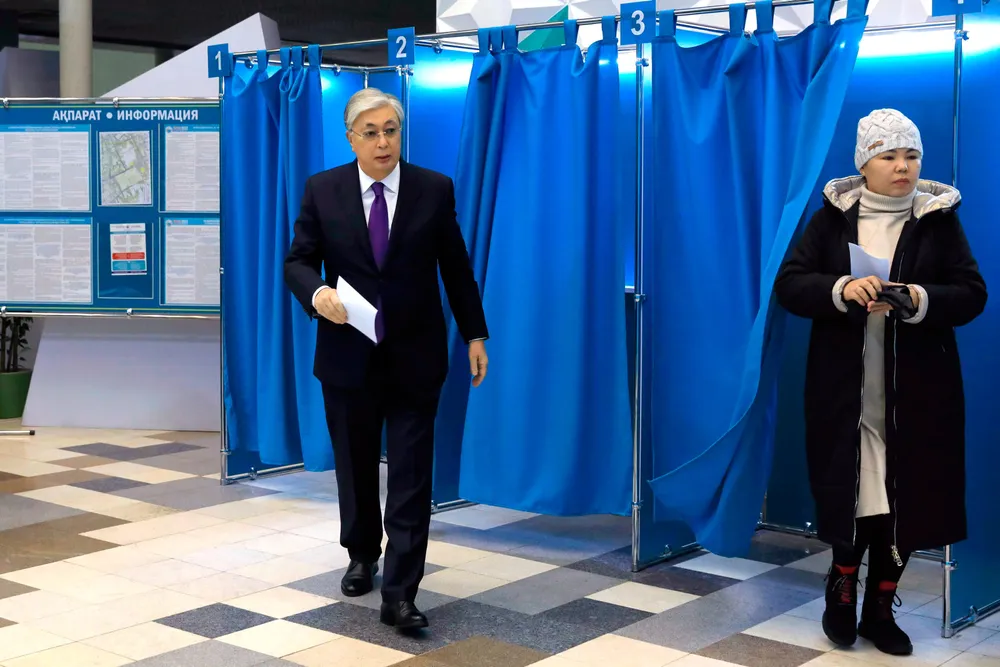Kazakh vote gives Tokayev extended term
President expected to push for construction of alternative oil export routes for country's large foreign-led developments

President expected to push for construction of alternative oil export routes for country's large foreign-led developments
